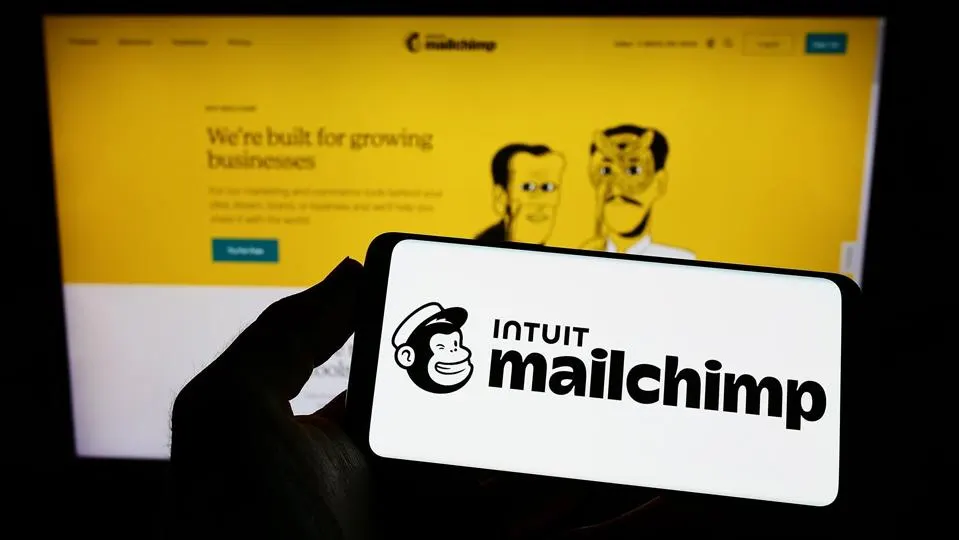The 9 Most Successful Business Models Of Today
2 July 2021
Times are changing so fast, particularly in the world of business. How businesses interact with their customers, how companies innovate, and even the very business models that organisations are built on – all are undergoing rapid change.

Yet, from what I’ve seen, many businesses are failing to keep up, and far too many are operating on outdated business models.
If you’re leading a company – whether it’s small or large, a brand-new start-up or an established business – you’ll need to understand the latest business models and assess how they might apply to your company. That’s why I’ve picked some of the most successful business models for 2019 and beyond. Let’s take a look.
The servitisation (subscription) business
Instead of selling a product or a service as a one-off, servitisation companies operate on a subscription or ongoing service model, building a more intimate understanding of their customers in the process. As an example, let’s compare content creators Netflix and Disney. Disney produces a film, releases it in cinemas, and the film is either a hit or it’s not. They won’t necessarily understand exactly how many people watched it and how much those viewers liked it. Netflix, on the other hand, has an intensely close customer relationship, understanding exactly how many users have streameda movie or series, whether they gave up part-way through and watched something else, whether they then went on to watch more content starring the same actor, etc. Another example is Dollar Shave Club (grooming subscription company) versus Gillette (razor manufacturer with limited direct customer relationship).
The platform-based business
This model is closely linked to the sharing economy and subscription models (see above– in fact, platforms are particularly powerful when combined with a subscription model). Well-known examples of platform businesses include Facebook, GitHub, Uber and Airbnb. As you can probably guess from these examples, platforms provide a mechanism or network – this could be a physical network, not necessarily online – for parties to interact with each other. Platforms deliver value for users by facilitating direct connections and exchanges between people (the more valuable the network is to the user, the more successful it is). In return, the platform gets incredible insight into its user communities.
The social, authentic business
The traditional, corporate business model,with its hierarchies, silos and endless formal meetings is changing. These days, customers want to see the people behind the brand; they want to really “connect” with a business. Remember how companies and, more specifically, the people who work for them were discouraged from voicing personal view points or discussing the company outside of work? That’s now an outdated way of operating. Today’s authentic businesses share their opinions and stand up for their values. Typically,the CEO is active on social media and employees are actively encouraged to be brand ambassadors. And crucially, the brand itself has a lively and engaging social media presence, with a strong brand message that really connects with the target audience. Some of today’s most authentic brands include Adidas, Apple and Lego.
The employee-centric business
The way we work is changing. People are more nomadic in their work, and the days of a “job for life” are well and truly gone. To be successful, companies still need great people, but the way they go about attracting those people is changing.The “gig economy” has played a huge role in this transformation, since it gives businesses the means to create a fantastic team in lots of different ways – not just the traditional, full-time, permanent employee route. As such, businesses are increasingly happy for people to come and go, and to work for more than one company at a time. In this changing environment, it’s vital companies become employee centric. This means offering people an attractive place to work, flexibility, space to grow, and the means to develop their career.Google is a prime example of such a business.
The partner-centric business
As well as becoming more employee centric, companies are also becoming more partner centric. They are almost like networked businesses, outsourcing work, tapping into on-demand services, partnering with providers, and in sourcing expertise where necessary. They create attractive networks of partnerships – and are a valuable partner to others.Just look at the average small or mid-sized business these days and you’ll likely see an example of a networked, partner-centric business. They might, for instance, outsource their social media strategy to one firm, partner with a web design company, bring in a brand consultant, enlist external training providers, and so on. In today’s rapidly changing business world, larger companies have a lot to learn from this flexible, scalable model.
The customer value-obsessed business
For me, this model applies to absolutely every business because it’s all about solving customers’ problems,anticipating their needs,making people’s lives easier and removing any friction or hassle. Amazon is an obvious example of this. Online personal styling subscription service Stitch Fix is another great example. With Stitch Fix, users detail their size and style preferences by filling out a questionnaire (they can also link to their Pinterest account). Then, using artificial intelligence, the system pre-selects clothes that will fit and suit the customer, and a (human) personal stylist chooses the best options from that pre-selected list. And voila, the perfect clothes for you arrive at your door every month. No more shopping in crowded shopping centres, queueing for changing rooms, or ordering items online only to find they don’t fit.
The constant-innovation business
The ability to innovate is crucial to business success. But, today, the pace of innovation isn’t just fast, it’s constant. Some of the most successful businesses in the world are constantly innovating and transforming, even if it means cannibalising their own products and services to create something new. Take Apple’s iPod, for example. By introducing smart phones that could hold your music, the company effectively killed off the need for a separate device. Sure, some people still love their iPod. But even die-hard iPod lovers won’t be surprised to learn that iPod sales have been in decline since 2008 – which, funnily enough, was the year after the iPhone was introduced.
The data-driven business
Smart organisations recognise that data is one of their critical business assets. Really smart organisations encourage a data culture, where the importance of data is recognised at every level of the business, and decisions across the company are based on data, not assumptions. The data-driven business has measures in place to understand exactly what’s happening now, and uses that information to make better decisions, refine operations and even create new revenue streams. Companies who really value data are well placed to experiment and innovate at a faster pace, which ties in with the previous business model.
The tech-savvy business
We live in a time of break-neck technological innovation. AI,big data, blockchain, 3D printing,augmented reality and virtual reality are just some of the massive changes that are taking place right now.So it’s no surprise that many of the most successful companies on the planet are tech businesses. Apple, Alphabet (Google’s parent company), Microsoft, Amazon and Facebook are, at the time of writing, among the six most valuable companies in the world; the only non-tech company in the top six is Warren Buffet’s Berkshire Hathaway. Regardless of your sector and company size, it’s vital your organisation embraces technology. If you don’t, you risk being left behind.
Many of today’s most successful businesses have managed to combine a number, if not all, of these business models to catapult their companies to stellar success.Over the years, I’ve helped companies big and small reshape their businesses and create more successful business models.So,if you’d like help with your business model transformation, get in touch.
Where to go from here
I hope you’ve enjoyed my list of successful business models. If you would like to know more, check out my related articles:
Related Articles
How Generative AI Will Change The Job Of Real Estate Agents
Real estate agents and other professionals in their industry are in the business of selling good old-fashioned solid bricks and mortar.[...]
How BCG Is Revolutionizing Consulting With AI: A Case Study
In a world where AI is transforming every sector, companies are constantly seeking ways to gain a competitive edge.[...]
The Biggest Education Trends Of The Next 10 Years
Education is changing rapidly. In today’s fast-moving world, a model where we graduate in our youth prepared for a lifelong career is simply no longer valid.[...]
Is This AI’s IPhone Moment?
Today, the term “iPhone moment” is frequently used to refer to a technology breaking through into the mainstream.[...]
AI Politicians: The Future Of Democracy Or A Threat To Freedom?
2024 is a big year for democracy, with over two billion of us voting in elections across the US, India, the EU, the UK and many other countries and territories.[...]
How Mailchimp Hopes To Build The End-To-End AI Solution For SMEs
I often write about AI's potential to transform any business. Yet, a question I frequently get from small businesses is, "Does that really include us?"[...]
Sign up to Stay in Touch!
Bernard Marr is a world-renowned futurist, influencer and thought leader in the fields of business and technology, with a passion for using technology for the good of humanity.
He is a best-selling author of over 20 books, writes a regular column for Forbes and advises and coaches many of the world’s best-known organisations.
He has a combined following of 4 million people across his social media channels and newsletters and was ranked by LinkedIn as one of the top 5 business influencers in the world.
Bernard’s latest book is ‘Generative AI in Practice’.










Social Media